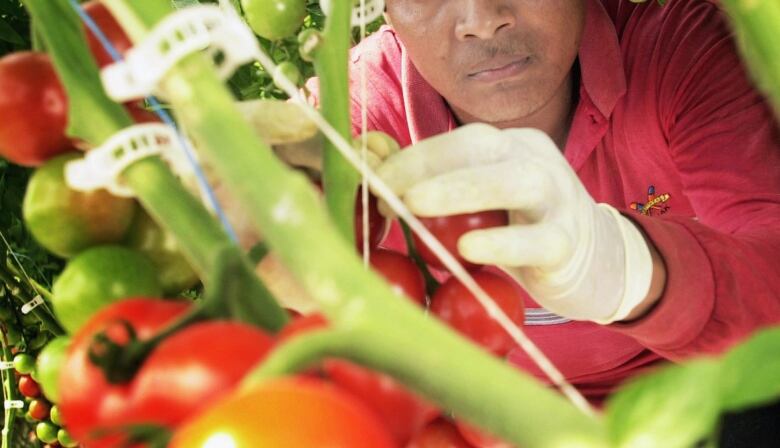Federal government looking at partial labour mobility for temporary foreign workers
Permits would be tied to occupation, not employer

The federal government is looking to make changes to the the country's popular — but controversial — Temporary Foreign Worker (TFW) Program.
On the weekend, a 30-day consultation was announced in the Canada Gazette for what the government calls "occupation-specific work permits."
Many foreign workers are currently tied to the employer that brought them to the country; they are not allowed to work for anyone else.
Under the new proposal, however, foreign workers in the low-wage and primary agriculture streams would be allowed to move between jobs, as long as it is in the same occupation classification.

"The mobility offered by this type of work permit could help workers leave an abusive workplace and potentially promote more competitive working conditions for foreign and domestic workers," the notice in the Gazette reads.
'We expected more'
Santiago Escobar, a national representative with the United Food and Commercial Workers, works with both unionized and non-unionized temporary foreign workers. He describes the changes as a step in the right direction, but still has many concerns.
Escobar believes that if the changes go through, foreign workers will have difficulty finding a suitable new employer that is approved to accept them, citing language and technological barriers. He hopes the government will accept his union's idea of establishing "hiring halls" run by government, labour and industry that will help TFWs find a new employer.
Tap on the player to hear Escobar speaking with Afternoon Drive host Chris dela Torre.
Overall, Escobar feels the proposed changes don't go far enough.
"We expected more," he said. "We have reaffirmed our very strong belief that Canada does not need a revised temporary foreign worker program. Canada needs a more inclusive, protective and revised immigration system — and also a larger immigration strategy."
Farmers concerned changes may affect SAW program
While temporary foreign workers work in many industries, one of the most visible areas is agriculture, where many workers come in under the Seasonal Agricultural Worker (SAW) program.
Ken Forth is a broccoli farmer who leads the Foreign Agricultural Resource Management Service (FARMS), a non-profit entity that brings in seasonal farm workers for Ontario.
He said that while the broader TFW program needs changes, the SAW program in particular should not be modified.
"[SAW] has a lot of checks and balances in it that the rest of the system does not have," he said, noting that the governments of the foreign workers have representatives in Canada that look after the needs of their workers.
He also explained that SAW workers are able to move to another farm through an established transfer program.
"The trouble with the whole thing that the government is doing is that they're not differentiating between the two programs," Forth said. "They're going to muck up one that works ... [SAW has] oversight, there is availability to move to another farm — that's the way it works."

